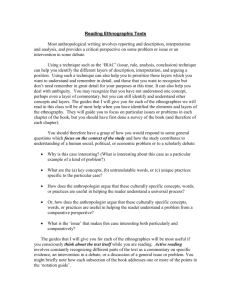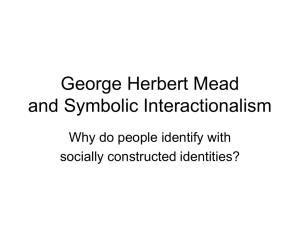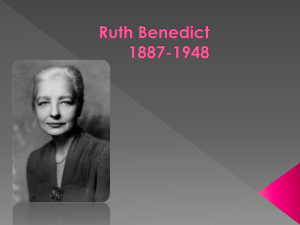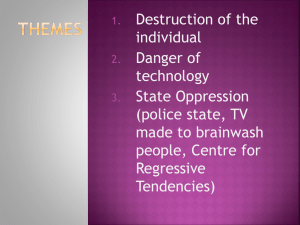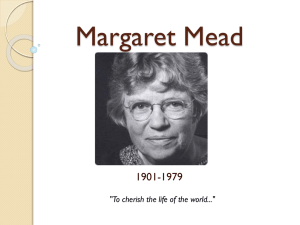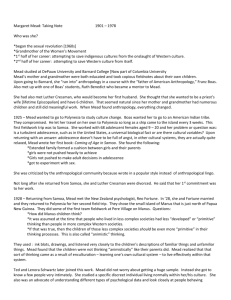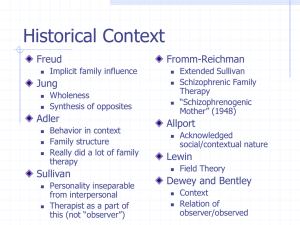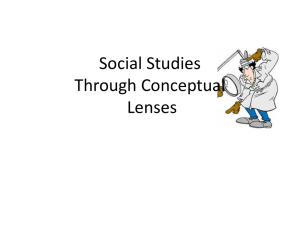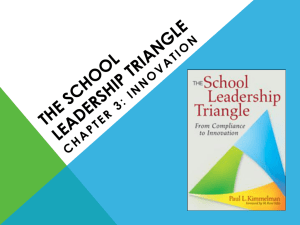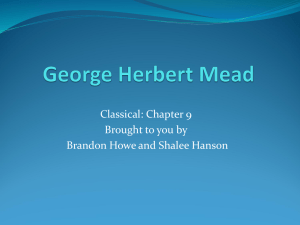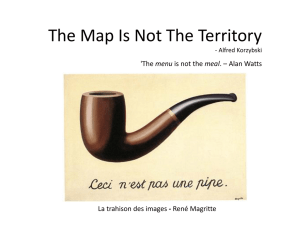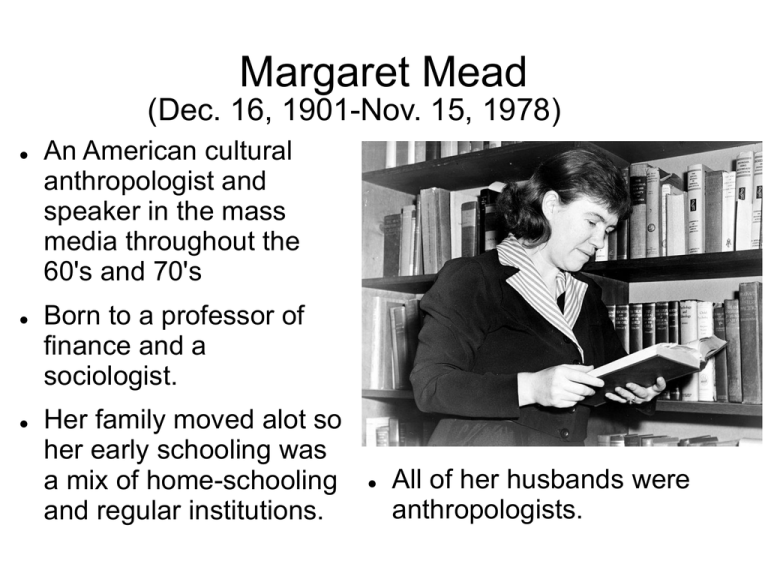
Margaret Mead
(Dec. 16, 1901-Nov. 15, 1978)
An American cultural
anthropologist and
speaker in the mass
media throughout the
60's and 70's
Born to a professor of
finance and a
sociologist.
Her family moved alot so
her early schooling was
a mix of home-schooling
and regular institutions.
All of her husbands were
anthropologists.
Husbands, Degrees and a Lesbian?
Luthor Cressman, former theology student turned
anthropologist. (1923-28)
Reo Fortune, an anthropologist who wrote Sorcerer's of
Dobu. She said that this relationship was more passionate
than the previous. (1928-35)
Gregory Bateson, an anthropologist, whom she said she loved
the most, but who left her. They had a child Mary Catherine
Bateson in 1939. (1936-50)
Husbands, Degrees and a Lesbian?
Got her B.A. from
Bernard University in
1923.
Got her M.A. from
Columbia University in
1924, under influence
of professor Franz
Boas and Dr. Ruth
Benedict.
Got her Ph.D. from
Columbia University in
1929.
Husbands, Degrees and a Lesbian?
Her daughter Mary
Catherine Bateson wrote
a book where she
suggested that her
mother may have had a
sexual relationship with
Dr. Ruth Benedict.
Mead never openly
stated that she was a
lesbian or bisexual.
Coming of Age in Samoa
This ethnography was
designed to discuss
whether the problems
facing adolescents were
products of adolescence
or products of society.
There has been some
controversy about this
book because Derek
Freeman went to study in
Samoa and stated that
many of the facts stated in
the book were false or lies.
Sex and Temperament in Three
Primitive Societies
This book was a
discussion of the
female dominated
societies of Papua New
Guinea.
This book was very
crucial to the feminist
movement due to the
idea that women can be
in control of society
without ramifications.
Complete Works
As a sole author
* Coming of Age in Samoa (1928)
* Growing Up in New Guinea (1930)
* The Changing Culture of an Indian Tribe (1932)
* Sex and Temperament in Three Primitive Societies (1935)
* And Keep Your Powder Dry: An Anthropologist Looks at America (1942)
* Male and Female (1949)
* New Lives for Old: Cultural Transformation in Manus, 1928-1953 (1956)
* People and Places (1959; a book for young readers)
* Continuities in Cultural Evolution (1964)
* Culture and Commitment (1970)
* Blackberry Winter: My Earlier Years (1972; autobiography)
As editor or coauthor
* Cultural Patterns and Technical Change, editor (1953)
* Primitive Heritage: An Anthropological Anthology, edited with Nicholas Calas (1953)
* An Anthropologist at Work, editor (1959, reprinted 1966; a volume of Ruth Benedict's
writings)
* The Study of Culture At A Distance, edited with Rhoda Metraux, 1953
* Themes in French Culture, with Rhoda Metraux, 1954
* The Wagon and the Star: A Study of American Community Initiative co-authored with Muriel
Whitbeck Brown, 1966
* A Rap on Race, with James Baldwin, 1971
Awards/Legacy
After her death, Mead was awarded the Presidential
Medal of Freedom, by Jimmy Carter. The award was
presented to her daughter.
She left her mark on Feminism and the Sexual
Revolution, through her many works.
Also left her mark on some American Episcopal
literature.
There is also a school in Washington State named
after her.
She was also named the “Mother of the World,” in
1969 by Time magazine.
Bibliography
Bateson, Mary Catherine. (1984) With a
Daughter's Eye: A Memoir of Margaret Mead
and Gregory Bateson, New York: William
Morrow.
Freeman, Derek. (1983) Margaret Mead and
Samoa, Cambridge, MA: Harvard University
Press.
http://www.webster.edu/~woolflm/margaretmea
d.html

